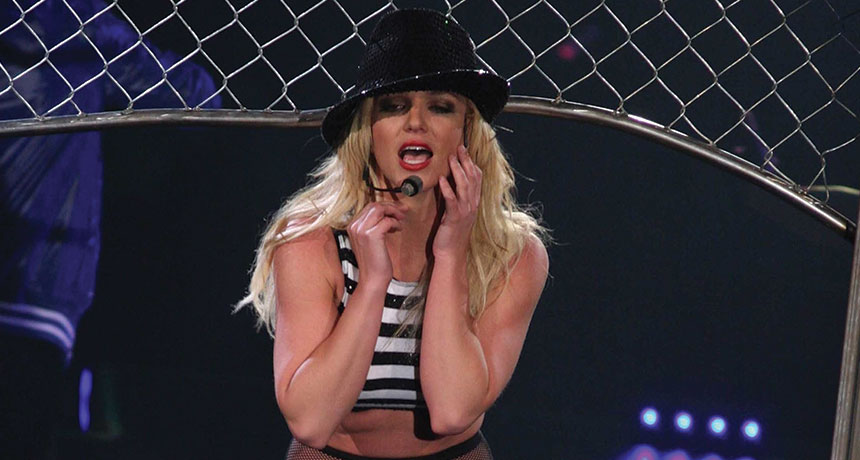‘Vocal fry’ makes female singers seem expressive
Low, creaky voice influences listener’s perception of musician

POP SONG Some singers, such as Britney Spears, use a technique called vocal fry that could make them sound more expressive to listeners.
Everett Collection/Shutterstock







